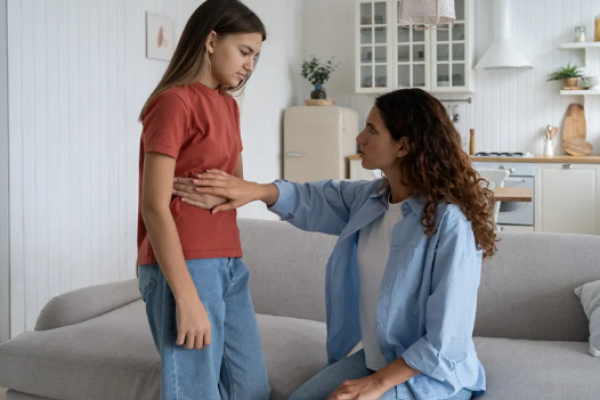How Chronic Pain Affects a Child’s Mental Health, Social Development, and School Performance
Chronic pain in children is a complex and often overlooked condition. While the physical aspects of pain are challenging, the emotional toll it takes on young patients is equally profound. Children experiencing chronic pain often face significant hurdles in their mental health, social development, and school performance. This article explores these key areas, highlighting the importance of addressing not only the physical but also the emotional impact of chronic pain in children.
The Mental Health Burden of Chronic Pain
Chronic pain is not just a physical sensation; it’s an experience that deeply affects a child’s emotional well-being. Many children with chronic pain struggle with feelings of anxiety, sadness, and even depression. Pain can be overwhelming, especially when it persists over long periods with no clear end in sight. Children may become frustrated with their condition, feeling helpless and losing hope for improvement.
This emotional strain can lead to increased anxiety, as they fear worsening pain or medical procedures. Some children develop avoidance behaviors, shying away from activities or environments they associate with pain. Over time, chronic pain can erode their self-esteem, as they feel “different” from their peers and unable to fully participate in normal activities.
Social Development Challenges
Children are naturally social beings, and much of their development comes from interacting with peers, playing, and participating in group activities. However, chronic pain can limit their ability to engage in these crucial experiences. Persistent pain often leads to fatigue, which can reduce their energy levels and enthusiasm for social interactions. As a result, children with chronic pain may withdraw from friendships, missing out on important social milestones.
This isolation can further exacerbate emotional difficulties. Children may feel alienated from their peers, especially if their condition is not well understood by those around them. They may miss out on birthday parties, sports, or school trips, deepening feelings of exclusion and loneliness. Over time, this isolation can hinder their social skills, making it more difficult for them to reintegrate into social settings.
Parents and caregivers should encourage open dialogue with their child about how they feel in social situations and find alternative ways to help them stay connected to friends. Building a supportive network of understanding peers can make a significant difference in reducing feelings of isolation.
The Impact on School Performance
Chronic pain doesn’t stop when a child walks into the classroom. In fact, the school environment can often make things more difficult. Pain can make it hard for children to concentrate on their studies, and the mental effort required to focus while in pain can be exhausting. As a result, academic performance often suffers. Children with chronic pain may struggle with concentration, memory retention, and completing assignments.
Frequent absences from school due to doctor’s appointments or pain flare-ups only compound these challenges. Missing school not only causes children to fall behind academically but can also make them feel disconnected from their classmates and the school routine. This disconnection can lead to further frustration and feelings of inadequacy.
Teachers and school administrators need to be aware of the challenges faced by children with chronic pain. Accommodations such as extended deadlines, shorter school days, or a modified workload can help children stay engaged in their education without overwhelming them.
Supporting Children Emotionally and Academically
The emotional impact of chronic pain on children is profound, but there are steps parents, caregivers, and educators can take to provide support. Here are a few strategies to help children navigate the emotional and social challenges of chronic pain:
Open Communication: Encourage children to express their feelings about their pain. Let them know it’s okay to feel frustrated, sad, or anxious, and reassure them that their emotions are valid.
Mental Health Support: Work with a pediatric psychologist or counselor who can help the child cope with the emotional challenges of chronic pain. Cognitive-behavioral therapy (CBT) has been shown to be particularly effective in helping children manage pain-related anxiety and depression.
Peer Support Groups: Connecting with other children who experience chronic pain can be a powerful way to reduce feelings of isolation. Peer support groups provide a safe space for children to share their experiences and offer encouragement to one another.
School Accommodations: Advocate for individualized education plans (IEPs) which can provide academic accommodations for children with chronic pain. This could include flexible attendance policies, modified workloads, or extra time for assignments.
Maintaining Social Connections: Help children stay engaged with their peers by arranging social activities that accommodate their pain levels. This could be as simple as inviting friends over for a low-energy activity like watching a movie or playing a board game.
Building Resilience: Encourage children to focus on what they can do rather than what they can’t. Celebrate small victories and achievements, even if they seem minor, to help build their confidence and resilience.
Chronic pain in children is a multifaceted condition that affects not just their physical health but their emotional and social well-being as well. The impact on mental health, social development, and school performance can be significant, but with the right support, children can learn to manage their pain and thrive. It’s crucial to recognize the emotional toll of chronic pain and provide children with the tools they need to cope emotionally, socially, and academically.
Holistic care that addresses both the body and mind is key to helping children lead fulfilling lives despite their pain.


